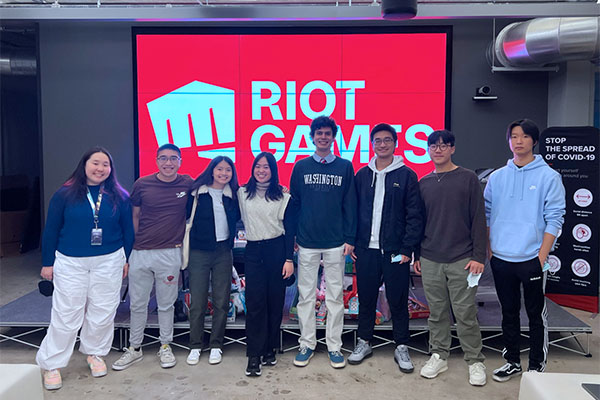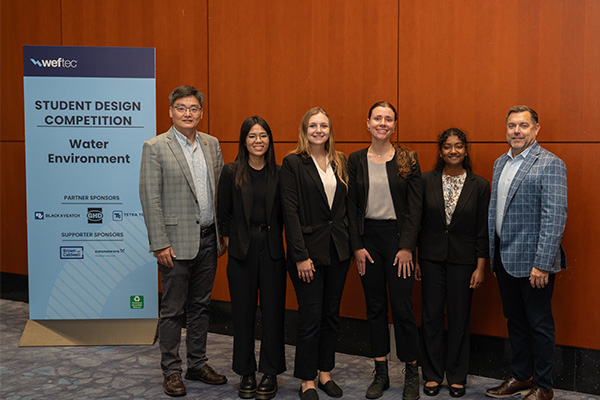Beyond computing: ACM aims to inspire love for computer science
Members of the Association for Computing Machinery (ACM) at WashU have worked hard to define who they are and share their passion for computer science

Members of the Association for Computing Machinery (ACM) at Washington University in St. Louis acknowledge their organization’s name can make it hard for others to know what they’re about. Named in 1947, the national organization was founded during a time when the term “computer” referred to those who performed mathematical calculations — “computing” — manually.
Despite that, members have worked hard to ensure they're synonymous with computer science at the McKelvey School of Engineering.
“I’m proud of the presence ACM has built on campus these past few months, and it’s nice that students can look toward ACM for anything computer-science related,” said Misheel Sodgerel, a senior majoring in computer science and president of ACM.
Sodgerel said she joined ACM during her first semester at WashU because she loves computer science and wants to help others enjoy it.
“Growing up, I had the privilege to indulge in scientific media and science fiction and access resources that gave me the power to test and explore coding,” she said. “I believe computer science and engineering are the closest things to magic. If everyone had the opportunity to explore computer science, we’d become more innovative and efficient as a society.”
The group has worked hard this year to build awareness about what it is and what it offers students with the goal of increasing engagement and turnout at events.
“We advertised events with flyers and by painting the underpass, and we recorded our accomplishments online with photos,” Sodgerel said. “I give massive credit for boosting our presence to Leslie Liu, one of the first ACM graphic designers, and David Park and Priscilla Lee, photographers who allowed us to capture the vibe of our events.”
ACM hosts events including career panels that allow students to network with professionals and tours of local companies, such as Riot Games. This year, the group also hosted Crochet x Code, a hands-on workshop that aimed to highlight the more creative aspects of computer science and engineering. During the event, students heard from Mercedes Bernard, a software engineer and fiber artist, and learned how to crochet a cat beanie following a pattern written in pseudo-code.
“I design, write and sell crochet patterns and found that writing the crochet patterns is similar to writing coding algorithms,” Sodgerel said. “I thought the workshop would be a great way to introduce non-coders to computer science and coders to crochet.”
Coming up, members plan to take part in the International Collegiate Programming Competition, one of the biggest programming competitions in the world, and the Cyber Apocalypse Hackathon later this year, as well as host a workshop in the Spartan Light Metal Products Makerspace. Sodgerel says the group wants to make computer science accessible to all students, whether they pursue it as a hobby or as a profession.
“By the end of the year, I hope that those who aren’t familiar with computer science will feel inspired to learn more after attending our events and that current programmers will have the resources to build on their studies and start their careers off strong.”



